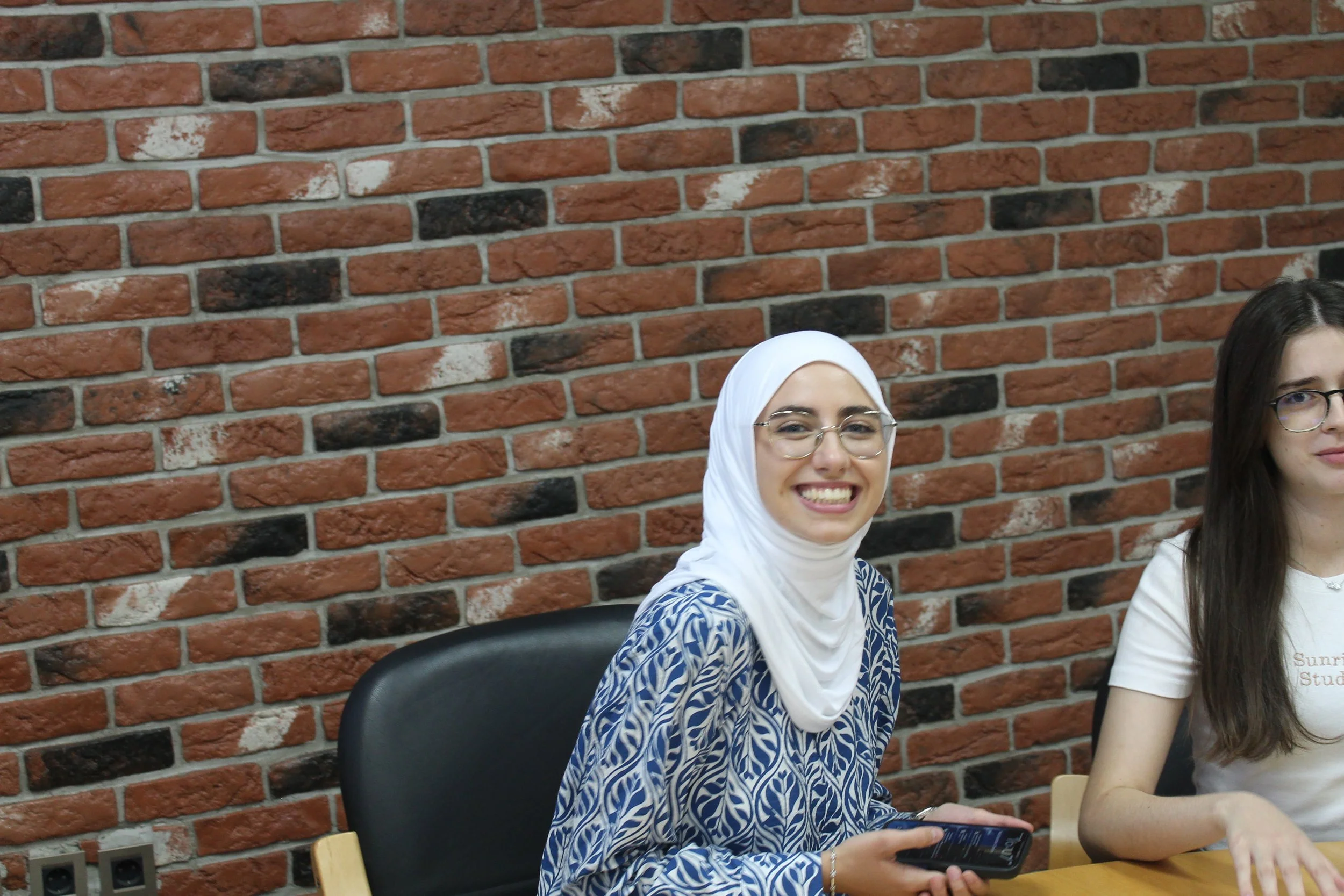Orderly Self-Management: Building Habits That Drive Achievement
Facilitated by Mirela Turković
In a world full of distractions and mounting responsibilities, the ability to manage ourselves, our time, energy, priorities, and mindset has become a foundational skill for both personal and professional success. That’s why the BH Futures Foundation hosted the workshop “Orderly Self-Management” as part of the 2025 Academy Tuzla learning series, led by psychologist and educator Mirela Turković.
This workshop was designed to give participants not just tools for productivity, but habits for sustainable achievement, grounded in reflection, emotional intelligence, and purpose. It was part of our Academy event hosted in different local communities throughout Bosnia and Herzegovina, combining internal development for scholars with broader local impact.
🎯 Workshop Goals
Learn how to manage time effectively and set priorities.
Set personal goals using SMART and HEART models.
Assess life balance and recognize signs of burnout.
Differentiate passive, aggressive, and assertive behavior.
Master assertive communication through "I" statements.
Identify personal values and link them to long-term goals.
Adopt habits of self-reflection and emotional awareness.
🧭 Introduction & Reflection
The workshop opened with one simple question:
“How would you describe your current day in three words?”
This entry point allowed participants to pause and reflect on their state of mind. From there, we explored the essence of self-management, the ability to manage ourselves before we manage our tasks.
“Self-leadership begins with knowing where your time, energy, and focus go,” Mirela emphasized. “Otherwise, tasks begin to manage us.”
⏳ Time Management: Tools & Mindsets
A key pillar of the workshop was time mastery, starting with the Eisenhower Matrix, which teaches us to classify tasks by importance and urgency. The core lesson: Stop reacting. Start prioritizing.
Other tools included:
Daily Scanner – a morning/evening check-in for energy and focus.
Time-blocking – intentional scheduling of focused work vs recovery time.
Work/Recovery Zones – structuring the day for deep work (9–11h, 14–16h) and active rest.
Eliminating Emergency Mode – ditching chronic urgency in favor of long-term planning.
Focus over Multitasking – mindfulness increases quality and reduces stress.
Participants tracked how they spent the previous day using the Skener Dana (Day Scanner) exercise and asked themselves:
“Am I doing the right things, or just doing a lot of things?”
🎯 From Desires to Actionable Goals
Not all goals are created equal. Participants learned the difference between vague wishes and real goals by applying both the SMART and HEART goal-setting frameworks.
SMART focuses on clear, measurable outcomes.
HEART connects goals with long-term emotional alignment, personal health, and purpose.
“Goals that don’t align with your values will always feel like a chore,” said Mirela. “But when a goal is truly yours—when it speaks to your truth—you’ll find energy to keep going.”
⚖️ Burnout Awareness & Life Balance
The modern high-achiever often walks a thin line between productivity and burnout. This segment helped participants identify early signs:
Constant exhaustion
Cynicism or loss of motivation
Sharp drop in performance
Using the Wheel of Balance exercise, each participant mapped out key life areas—health, relationships, rest, finances, confidence—and scored their current satisfaction.
“If your life wheel is jagged, you can’t move smoothly. Balance is about traction, not perfection.”
💬 Assertive Communication & Emotional Awareness
The workshop also explored the communication spectrum:
Passive: suppressing needs
Aggressive: pushing over others
Assertive: expressing needs clearly and respectfully
Through "I" statements, scholars practiced how to communicate assertively without conflict. This skill not only builds better relationships—it reduces stress and strengthens personal boundaries.
🧠 Values, Motivation & Self-Reflection
The final segment focused on values-driven living—understanding that real motivation isn’t about willpower, but emotional connection to what matters most.
Participants reflected on:
Their core values (e.g., freedom, creativity, contribution)
What gives them purpose
How to align daily tasks with personal meaning
“Discipline is overrated. What we need is alignment,” Mirela reminded. “When we act in harmony with our values, we don’t burn out—we burn brighter.”
✅ My Personal Action Plan
The workshop closed with each participant creating a personal action plan, integrating what they had learned: a small set of consistent habits aligned with their values, vision, and goals.
This wasn’t just about productivity, it was about inner clarity, long-term growth, and self-leadership.
By grounding achievement in self-awareness, emotional alignment, and mindful habits, Orderly Self-Management reminded us that success isn’t about doing more—it’s about doing what matters, with presence and purpose.





